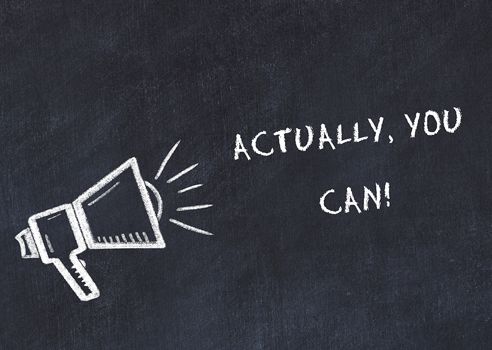Reading time: Less than 1 minute
This is my weekly installment of “writing about writing,” in which I scan the world to find websites, books and articles to help other writers. Today I discuss a blog post about the words ‘but’ and ‘actually’….
I read a blog post this week about delivering better customer support via social media. (That concept sounds like an oxymoron to me, but I digress.)
An interesting suggestion, however, appeared in tip 3, under the header, “Words to avoid saying to customers.” The two big ones? ‘Actually’ and ‘but.’
Here’s what the post said:
We’ve found is that it almost doesn’t matter how good the news is. If it comes after “actually,” we feel like we were somehow wrong about something.
Consider these two sentences:
- Actually, you can do this under “Settings.”
- Sure thing, you can do this under “Settings!”
Do those feel any different to you?
We don’t ever want customers to feel stupid, or wrong, or corrected. The word “actually” can imply some of these feelings. Our team’s writing and speaking gets so much brighter when we lose the “actuallys”
I agree that the problem with “actually” is that it sounds condescending, like you’re correcting a customer (or, a reader). In some ways you’re saying, “Hey, dummy, do things THIS way.”
Now, here is what the post says about the word, ‘but’:
- I really appreciate you writing in, but unfortunately we don’t have this feature available.
- I really appreciate you writing in! Unfortunately, we don’t have this feature available.
The word “but” renders whatever you said right before it to be completely obsolete. What we try to do instead is to substitute the word “but” for an exclamation point or semi-colon.
While I understand the wisdom of avoiding ‘but’ in customer service responses, I’d hate to see writers strike it from their vocabularies. ‘But’ is a coordinating conjunction that’s incredibly useful — especially at the beginning of sentences.
And, by the way, it’s 100% okay to begin sentences with ‘but’ and ‘and,’ despite what your high school English teacher might have told you.

